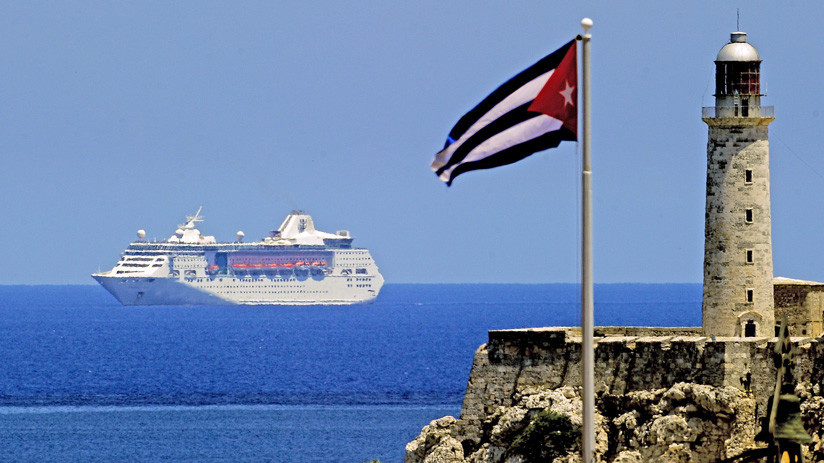
Illustrative image. Yamil Lage / AFP
By María Josefina Arce
At the end of 2022, a federal judge in Florida sanctioned four cruise lines, based in that U.S. state, to pay fines of more than 400 million dollars for including Cuba on their itineraries, a ruling that reaffirms -- in case anyone still doubts it -- the existence of Washington's blockade against the Cuban people.
The ruling is based on alleged damages to the U.S. company Havana Docks, which had the concession to operate some of the docks of the Port of Havana before the revolutionary triumph of January 1959.
The decision ignores the legitimate nationalization process carried out by the revolutionary authorities in 1960 and the fact that the confiscated U.S. companies rejected, under the imposition of the then U.S. government, the Cuban offer to reach a compensation agreement.
Washington, as experts recall, mistakenly opted for a hostile policy towards the Caribbean nation, which has included support for the mercenary invasion of Playa Girón in 1961, sabotage, discredit campaigns, assassination attempts against the leaders of the revolution, sabotage, the introduction of diseases into Cuban territory and an inhumane blockade.
Recourse continues to be made to Article III of the Helms Burton Act, activated in 2019 by then President Donald Trump, and that despite being in force since 1996, its application had been suspended by his predecessors in the White House.
But it is well known that during his term Trump intensified the genocidal siege, even in the midst of the global health emergency due to COVID 19. More than 240 measures against the Cuban people were put in place, most of which remain in force.
Twenty-five years ago, the now former President Bill Clinton signed the well-known Helms Burton Act, which internationalized the economic, commercial and financial blockade against Cuba, rejected year after year by the UN General Assembly by an overwhelming majority.
The norm typifies limitations on trade, transactions and travel to and from the Caribbean nation, although the United States claims to defend the right of its citizens to travel freely.
The Cuban daily Granma states that the ruling follows a March ruling by the same judge, who found that the four companies committed what she called "acts of trafficking" and engaged in "prohibited tourism" by bringing U.S. travelers to Cuba and using Havana port facilities.
Under Article III, which refers to the purported "protection of the property rights of U.S. nationals," several claims have been established in U.S. courts over property properly and lawfully confiscated by the revolutionary government of the Greater Antilles.
The new ruling is an open threat to those who wish to invest on Cuban soil and do business with the government. The regulations of the law that it is based on are contrary to international law, to the principles of the UN Charter and to the rules established by the World Trade Organization.
Helms Burton is an affront to the sovereignty of Cuba and third countries. It reinforces the framework of norms that make up the U.S. blockade, aimed at suffocating the Cuban economy and attempting to starve the Cuban people of hunger and disease.

